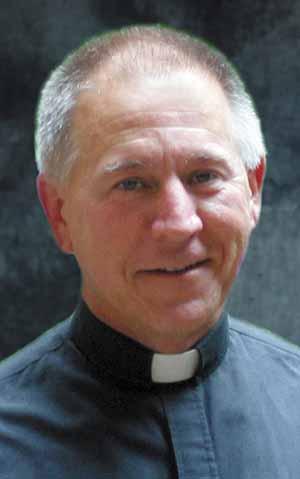
By Father Bud Grant
Maurice Dingman hailed from rural southeast Iowa. Before becoming bishop of the Diocese of Des Moines, he was the chancellor of the Diocese of Davenport. Bishop Dingman is, simply, a saint. Perhaps the only serious obstacle to his canonization is that he ordained me a priest. He was a holy man and a prophet of great courage. He cried against making the Iowa farmer an economic serf to the great ag-corporations. He worried about the “asphalt-ication” of the world’s greatest soils through urban sprawl and exurban migration. He bemoaned the decline of the number of farms and of the number of farmers, especially minority farmers.
The bishop often asserted that if he hadn’t been a priest he would have become a farmer. His point was that farming is a sacred profession — a vocation. Farmers, he insisted, are doing God’s work. But that work is being done by fewer people in America, and most of them are reaping a meager harvest.
Until the Second World War, about one-half of all Americans farmed. Things changed quickly thanks to post-war industrialization, chemical fertilizers, herbicides, pesticides and, not least, a conviction of policy makers that there were “too many” farmers (their point was that the cities needed workers).
Today, less than 2 percent of Americans farm, and of those, a mere .065 percent produce 75 percent of the nation’s food. Decades-long trends continue: farms have become larger, farmers are older, and more farmers work off the farm. Less than one-half of all farms report a positive cash income. The stats for Iowa farmers more or less parallel national trends.
It is kind of gloomy — maybe Bishop Dingman had a martyr complex! What might he have meant? He said that farming is a vocation. “Cultus,” in Latin, means “tilling,” the root of our word “cult” which means a religious practice. “Agri” means fields, so agriculture means the religious practice of tilling the soil — literally the very grounding of “culture.” So Bishop Dingman’s insight is enshrined in our very language.
John Paul II and Benedict XVI have both made much of the biblical term “steward.” The word refers to one who takes care of the property that belongs to another. In biblical terms, it means that all of those who possess the land are really holding it for the Lord of the land. Hence, as the great biblical theologian Walter Brueggemann would say, farmers are the stewards of God’s creation.
At risk of biting the hand that feeds us all, I think Bishop Dingman might remind our rural brothers and sisters that they are, in a most literal way, God’s stewards. The earth is the Lord’s and its fullness, says the psalmist. Chemicals increase yields but pollute ground water and kill benign life-forms. Intense tilling erodes soils, even as it moisturizes soil and quickens the planting season.
Reducing harvests to a few species of plants and animals simplifies markets, but also whole ecosystems. Hybrids are designed for maximum bushels per acre, but make the user an economic serf. We produce in abundance, but the world is still hungry.
Is this, then, the fault of the modern farmer? No more than of the urban consumer, certainly. If we want chemical-free food, we should pay for it. If we want more farmers on the land, then we should support their investments. If we want to feed the world’s hungry, then we should teach the world’s farmers (most of whom, by the way, are women) how to farm in a swiftly changing climate.
Farming is a vocation, not just a profession. The neo-logism “agri-business” strips that calling from its roots in our Scripture and Tradition. As we complete the planting season, let’s listen more attentively to our own Bible and take a moment to thank the farmer for his or her commitment to steward God’s land even while we challenge him or her to restore God’s creation.
My advice? This summer, shop at an Iowa farmer’s market.
(Father Bud Grant is an assistant professor of theology at St. Ambrose University in Davenport.)








